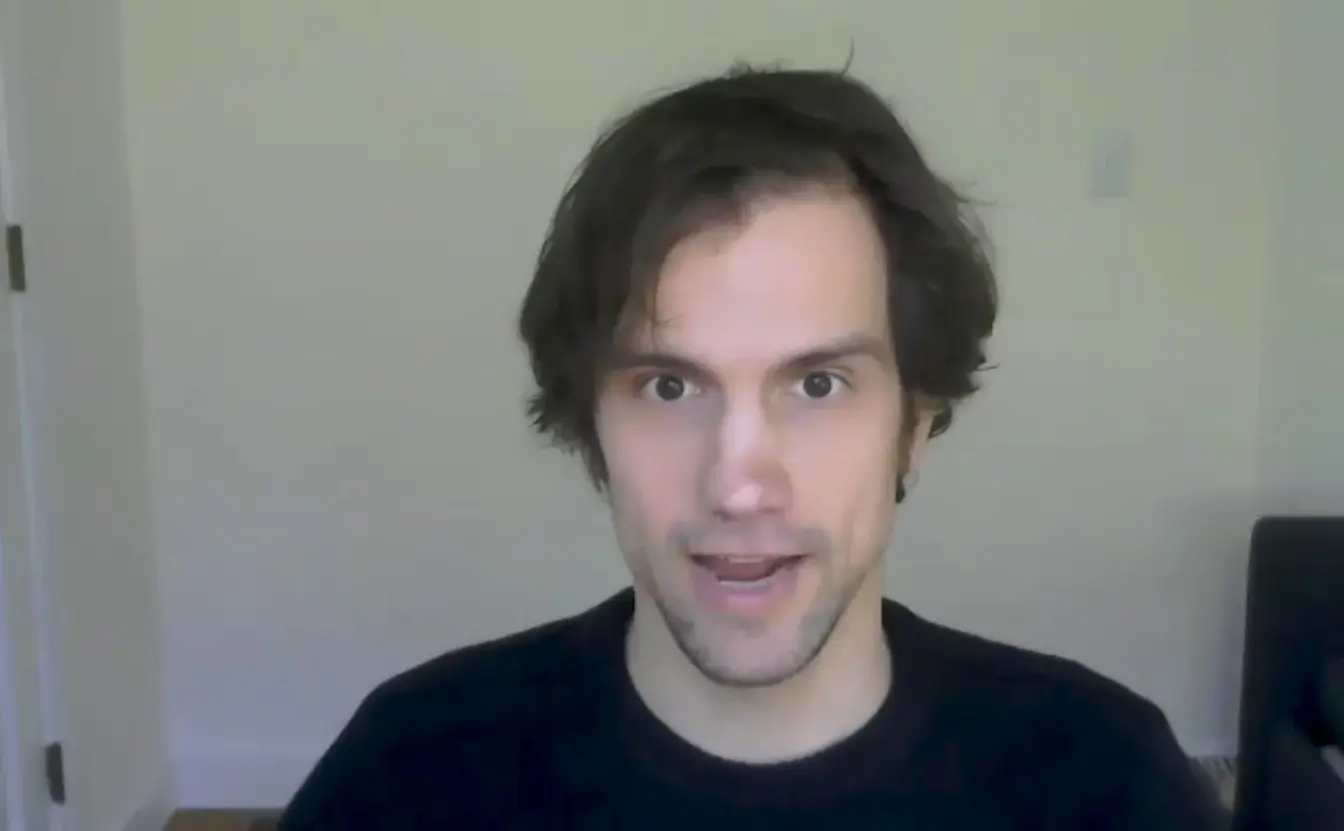
Since the beginning of the pandemic, the Yale SOM finance faculty have commented on a number of Covid-19 related topics in the media and have used their research to further contribute to a variety of pressing issues including the stock market, the economy, and federal interventions.
Below is a collection of some of the Yale SOM finance faculty’s work and comments on Covid-19 and the economy.
The Stock Market and The Economy
In March of 2020, the stock market plunged. The subsequent months provided unpredictability in the market’s volatility and uncertain path to recovery. Market predictability became challenging because of several unknown factors including investor anxiety, the toll of the tanking market on retirement savings, rising unemployment numbers, and the time it will take to create a vaccine for the Covid-19 virus.
James Choi
- “The Biggest Money Mistakes People Make in a Recession,” The Wall Street Journal
- “What the Plunge in the Stock Market Means for Individual Investors,” Yale Insights
Stefano Giglio
- “What Investors Said —And Actually Did— During the Covid-19 Crash” Institutional Investor
- “During the COVID-19 Crash, Investors’ Beliefs Didn’t Match Their Behavior,” Yale Insights
- “How Investors Overreact,” Investors Chronicle
William Goetzmann
- “Opinion: Wall Street traders now are highly polarized — just like they were at the February 2020 market top,” MarketWatch
- “Covid condemns value investing to worst run in two centuries,” Financial Times
- “Are Stock Investors ‘Irrationally Exuberant’ Again?,” The Wall Street Journal
- “Pandemic Panic: The Stock Market Reaction to Covid-19,” MetroFocus
- “The Two Pandemics,” Project Syndicate
- “Now the world faces two pandemics – one medical, one financial,” The Guardian
- “The Stock Market Grapples With Coronavirus: How Bad Could It Get?” Connecticut Public Radio
- “Opinion: The anxiety stock market investors feel about the pandemic in the markets is not perfectly logical, but it is quite real,” MarketWatch
Gary B. Gorton
- “Stock Rally Gives Commodities New Shine” The Wall Street Journal
Roger Ibbotson
- “Roger Ibbotson – Yale Professor Talks About the Future of Interest Rates, The Stock Market, and More,” The Money Tree (podcast)
- “Why the Market Is Booming and the Economy Is Struggling,” Yahoo! News
Tobias J. Moskowitz
- "The Side Effects of Social Distancing," Freakonomics
Geert Rouwenhorst
- “Stock Rally Gives Commodities New Shine” The Wall Street Journal
Robert Shiller
- “The Stock Market Could Tumble Even If Covid Is Over Next Year,” Forbes
- “Swelling US stock valuations leave some investors uneasy,” Financial Times
- “A popular stock-market indicator flashes red as Dow soars to records Friday,” Bloomberg
- “Expensive stocks do not necessarily mean a crash is close,” The Economist
- “Making Sense of Sky-High Stock Prices,” Project Syndicate
- “Stock Prices 'Not as Absurd' as Some Think: Shiller,” ThinkAdvisor
- “What's The Story? Narratives And The Economy,” The Indicator from Planet Money (NPR podcast)
- “How Bad News Can Cause Stock Prices to Go Up,” ValueWalk
- “The Stock Market Is On The Edge Of A Historic Crash,” Forbes
- “STREETWISE: Concern rising over major stock market downturn,” Sarasota Herald-Tribune
- “Investor Confidence Shifts Into a Lower Gear,” Investopedia
- “Shiller’s Lesser-Known Index Warns the Crash May Not Be Over,” Money & Markets
- “Nobel-winning economist Robert Shiller says low investor confidence and high prices are raising the risk of a market crash — and cautions investors not to be overweight stocks,” Business Insider
- “It’s been years since investors have been this fearful of a stock market crash, Nobel-winning economist warns,” MarketWatch
- “People Fear a Market Crash More Than They Have in Years,” The New York Times
- “What Famed Economist Robert Shiller Sees in ‘Vexing’ Stock Market Rebound,” Institutional Investor
- “The Stock Bubble,” Seeking Alpha
- “Stocktake: Investors spooked by market decline” The Irish Times
- “3 Signs That the Stock Market May Be Too Expensive,” The Motley Fool
- “Stocks Look Stretched (Or: How I Missed the Rally)” Bloomberg
- “The Median S&P Stock Has Never Been More Expensive” The Wall Street Journal
- “Skeptical About the Market Rally? You’re Not Alone,” The Motley Fool
- “Maybe There’s Something to the Shiller CAPE Ratio, After All,” Morningstar
- “The stock market and economy have parted ways. It’s a FOMO market now.,” The Washington Post
- “Here’s an Investment That Perfectly Tracks the Economy,” The Wall Street Journal
- “The pandemic's 2nd phase could have a worse psychological impact, Nobel Prize-winning economist Robert Shiller warns,” Market Insider
- “Stock market’s relationship with economy isn’t always consistent, Robert Shiller says,” CNBC
- “Understanding the Pandemic Stock Market,” Project Syndicate
- “Opinion: Robert Shiller explains the pandemic stock market and why it’s decoupled from the economy,” MarketWatch
- “Robert Shiller: Coronavirus fear factor may weigh on nation for years,” CNBC
- “How Investors Overreact,” Investors Chronicle
- “Are Stock Investors ‘Irrationally Exuberant’ Again?,” The Wall Street Journal
- “Would You Buy a Bond Linked to Your Country’s GDP?,” Bloomberg
- “These Are The 3 Narratives Driving Markets,” Forbes
- “What Is The Stock Market Trying To Tell Us?” NPR Planet Money
- “Profs. Andrew Metrick and Robert Shiller Discuss COVID-19 and the Economy on ‘Yale Talk’ Podcast” Yale School of Management
- “America is in turmoil and stocks are booming. Is the market broken?” CNN Business
- “Why We Can’t Foresee the Pandemic’s Long-Term Effects,” New York Times
- “The Investor's Guide Through Irrational Exuberance,” Seeking Alpha
- “Here's what kind of return you can expect from stock markets going forward,” Financial Post
- “Moderna Vaccine Fiasco Shows Power of Stock Market Narratives,” Bloomberg
- “Have the Record Number of Investors in the Stock Market Lost Their Minds?,” The New Yorker
- “Robert Shiller: “Not Much of a Sell Signal” for U.S. Stocks,” Advisor Perspectives
- “Does Covid-19 Prove the Stock Market Is Inefficient?,” Pairagraph
- “How Will We Tell the Story of COVID-19?” Yale Insights
- “Robert Shiller: Why Investors Are Comparing COVID-19 to the Great Depression,” ThinkAdvisor
- “Surveillance: Value Investing With Herro (Podcast),” Bloomberg
- “Are we headed for a recession or a depression? And what's the difference?” NBC News
- “The economy is a disaster. Should we stop talking about it?,” Marketplace
- “Robert Shiller: Pandemic of fear could tip economy into a depression,” CNBC
- “Robert Shiller: Coronavirus depression fears may set stage for a self-fulfilling prophecy,” CNBC
- “Covid-19 has brought a second pandemic: financial anxiety,” World Economic Forum
- “The Two Pandemics,” Project Syndicate
- “How the stories driving economics spread like epidemics,” The Irish Times
- “Predictions for the Coronavirus Stock Market,” The New York Times
- “Now the world faces two pandemics – one medical, one financial,” The Guardian
- “Why We Can’t Foresee the Pandemic’s Long-Term Effects,” New York Times
- “What Is The Stock Market Trying To Tell Us?” NPR Planet Money
- “Opinion: The anxiety stock market investors feel about the pandemic in the markets is not perfectly logical, but it is quite real,” MarketWatch
- “Where’s the bottom for stocks? By this important measure, they may have hit fair value,” Fortune
- “A Simple Investing Playbook for the ‘Great Cessation’,” The Wall Street Journal
- “Famed economist Rober Shiller doesn’t think we are headed for another Great Recession,” Fortune
- “Your Money: Coronavirus fears shake Yale economist Robert Shiller,” Reuters
- “How to Stop Worrying and Love a Falling Stock Market,” The New York Times
- “Robert Shiller: Coronavirus outbreak is creating a ‘dangerous time’ for markets,” CNBC
- “Nobel prize winning economist Robert Shiller says this economic disruption is different,” Quartz
- “Investor psychology tips for surviving Covid-19,” The Irish Times
- “Two epidemics combine to make for a ‘dangerous time for the stock market,’ Nobel Prize-winning economist warns,” MarketWatch
- “Robert Shiller: Coronavirus panic has not hit peak levels yet,” CNBC
- “Yale’s Shiller on Economic Fallout From Virus, Fed Policy and Housing,” Bloomberg
- “Oil Crash and Coronavirus Roil Markets (Podcast),” Bloomberg

November 30, 2020 – Project Syndicate: Many have been puzzled that the world’s stock markets haven’t collapsed in the face of the COVID-19 pandemic and the economic downturn it has wrought. But with interest rates low and likely to stay there, equities will continue to look attractive, particularly when compared to bonds. By Robert J. Shiller, Laurence Black, Farouk Jivraj

October 23, 2020 – New York Times: Stocks could well rise despite investor worries, the economist Robert Shiller says, but this is a high-risk moment.
The coronavirus crisis and the November election have driven fears of a major market crash to the highest levels in many years.
At the same time, stocks are trading at very high levels. That volatile combination doesn’t mean that a crash will occur, but it suggests that the risk of one is relatively high. This is a time to be careful.

October 22, 2020 – Yale Insights: Despite a general wave of pessimism following the COVID-19 stock crash in March, few investors made significant changes to their portfolios, according to new research from Yale SOM’s Stefano Giglio. Most predict the economy will recover in the long term—but fear more trouble is likely in the short term.

March 18, 2020 – Yale Insights: The S&P 500 has fallen by more than 30% as the markets react to the COVID-19 crisis. We asked Yale SOM’s James Choi, who has examined the implications of academic research for personal finance, what studies say about how to respond to a market crash.

April 28, 2020 – Yale Insights: The COVID-19 outbreak is a chapter in history we’re only just beginning to chronicle. We asked Yale SOM’s Robert Shiller, whose latest book is Narrative Economics, to tell us what collective stories are forming around the pandemic and what they might mean for our economic future.
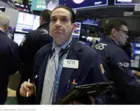
March 12, 2020 – Connecticut Public Radio: The dizzying plunge in stock market values in recent days, as the coronavirus crisis has intensified, has the business world on edge. William Goetzmann, professor of finance at the Yale School of Management and stock market historian, spoke with Connecticut Public Radio’s All Things Considered to put the recent volatility into perspective.
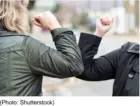
March 18, 2020 – Freakonomics: In just a few weeks, the novel coronavirus has undone a century’s worth of our economic and social habits. What consequences will this have on our future — and is there a silver lining in this very black pandemic cloud?
The fact is, there are a lot of things flying under the radar right now, a lot of consequences that may come out of the global response to Covid-19. So we thought we’d call a few economists whose past research indicates they might have some insights into the future that’s being crafted right now by the extraordinary changes we’re all living through.
Putting Things Into Historical Perspective
If the saying, “history repeats itself,” is true, then financial history could give some sort of insight into the Covid-19 stock market volatility we are experiencing. Although there are currently many unknown variables, similar situations such as the 1918 Spanish Flu Pandemic and South Sea Bubble of 1720 provide insight into how investors reacted to an economic downturn and how the market recovered. Behavioral economics and behavioral finance also play a role here in examining investor behavior after previous crashes.
William Goetzmann
- "Pandemic Panic: The Stock Market Reaction to Covid-19" PBS
- "We Can't Prevent Market Panics. We Can Control How We React." The Wall Street Journal
- “Crashes and COVID-19 in Historical Context,” Yale Insights
Robert Shiller
- “S&P 500 Has Only Been This Expensive One Other Time — At The Peak Of The Dot-Com Bubble,” Yahoo! Finance
- “One gauge of stock-market valuation has reached its highest point since the dot-com bubble - and exceeds levels seen before the 1929 crash,” Business Insider
- “Profiling S&P 500 Drawdowns Since 1871,” Seeking Alpha
- “How Monday's Stock Market Nosedive Brings Back Bad Memories Of 1987's Black Monday,” International Business Times
- “Lessons From History: 2000,” Seeking Alpha
- “The Stock Market Crash of 1987: What Can We Learn from “Black Monday”?,” Coin Codex
- “Can history guide investors through the coronavirus crash?,” The Irish Times

March 23, 2020 – Yale Insights:
The stock markets are reeling as fear and uncertainty about the global pandemic grow. We asked Yale SOM’s William Goetzmann, whose research includes financial history, to put the volatility into historical perspective.
April 3, 2020 – PBS: The spread of COVID-19 has shaken financial markets and led to layoffs across the country. Over 3 million Americans have filed for unemployment. Stocks have suffered major losses unrivaled since 2008 and the Dow has seen its worst decline since 1987 - the year of the Black Monday stock market crash. Tonight, we put your financial fears into historical perspective.
Federal Interventions
During the pandemic, it became clear that the federal government needed to intervene and find ways to help save the economy. The federal government worked to provide stimulus packages to the American people while the Federal Reserve rolled out a “Main Street” lending program to help keep businesses afloat.
William English:
- “In pandemic, Fed showed its muscle in markets still matters,” Reuters
- “WATCH: Fed chair Jerome Powell discusses economy,” PBS
- “Fed Reinforces Plans to Provide Open-Ended Stimulus to Spur Recovery,” The Wall Street Journal
- “Fed keeps rate near zero and sees brighter economy in 2021,” AP
- “Virus, political risk, rising as Fed takes stock of post-election landscape,” Reuters
- “Op-Ed: How to fix the Fed’s broken Main Street Lending Program,” The Los Angeles Times
- Fed Must Alter Habits of a Generation in Higher Inflation Quest,” Bloomberg
- “Fed Extends Emergency Programs on Eve of July Policy Announcement,” The New York Times
- “Fed sees dim economic outlook as virus squeezes economy,” Associated Press
- “A Federal Program Is Supposed to Keep Midsize Businesses Afloat. Why Isn’t It Reaching Them?,” YaleInsights
- “Negative interest rates, explained — and how they work,” MSN
- “Can the Fed's Main Street loan program save midsize companies during COVID-19 crisis?” USA Today
- “‘It’s very discouraging’: America’s new $600 billion rescue program for small businesses is off to a rocky start,” The Washington Post
- “Former Fed economists recommend widening scope of $600 billion Main Street Lending Program,” Business Insider
- “Faculty Viewpoints: Preventing a Financial Crisis,” Yale Insights
- “Powell Steps Gently Onto Congress’s Turf With Spend-More Message,” Bloomberg
- “Fed enters a risky new world with ‘Main Street’ loan program,” AP News
- “Steven Mnuchin Says U.S. Aims to Get Back Its Money From Fed Programs,” The Wall Street Journal
- “No Junk Debt Is Too Risky: How Fed’s Bailout Changed Everything,” Bloomberg
- “How Jerome Powell’s Unconventional Career Path Prepared Him for This Crisis,” The New York Times
- “Negative interest rates, explained – and how they could turn the world of banking upside down,” Bankrate.com
- “The Fed is pulling out all the stops – which is both good and bad,” NBC News
- “Six questions about the stock market meltdown,” The Boston Globe
- “Fed virus-driven cut may test new approach to inflation,” Reuters
- “Lawmakers Say Banks Need Guidance on Virus-Related Workarounds,” Bloomberg
- “Federal Reserve Cuts Rates by Half Percentage Point to Combat Virus Fear,” The Wall Street Journal
- “Even after a half-point rate cut, the market is expecting the Fed to do a lot more,” CNBC
- "The Fed enters a risky new world with 'Main Street' loan program," AP News
Andrew Metrick:
- “Awaiting the Will to Ensure Financial Market Stability,” Yale Insights
- “Is it Time to Shut Down the Fed’s COVID Stimulus Programs?,” Yale Insights
- “Can Government Contain the Economic Crisis?” Yale Insights
- “Profs. Andrew Metrick and Robert Shiller Discuss COVID-19 and the Economy on ‘Yale Talk’ Podcast” Yale School of Management
- "The big problem coronavirus poses for White House economists," CNN
- "Stimulus May Be Too Late For Many After 50,000 Stores Close," The Washington Post
- “Faculty Viewpoints: Preventing a Financial Crisis,” Yale Insights
- “Washington will have to spend more than just $1 trillion to prevent economic calamity,” CNN
- “As Recession Looms, Priority Is Lessening Severity, Easing Financial Stress,” The Wall Street Journal

November 20, 2020 – Yale Insights: This week, Treasury Secretary Steven Mnuchin requested that the Federal Reserve return unused funds for four emergency lending programs, effectively shutting them down at the end of the year. Prof. Andrew Metrick, director of the Yale Program on Financial Stability, says the programs are an insurance policy that may be badly needed in 2021.
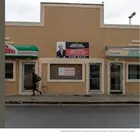
August 31, 2020 – Yale Insights:
Since COVID-19 convulsed the global economy earlier this year, Prof. Andrew Metrick and his team at the Yale Program on Financial Stability have been tracking government efforts to provide stimulus, prevent job losses, and keep markets from melting down. Metrick says that fighting a crisis is different from economic policymaking in normal times; governments need to be exceptionally generous and not get bogged down in stringent processes that keep money from getting to those in need. He also describes how efforts to ease the economic downturn have created new and burgeoning risks within the financial system.

July 28, 2020 – Yale Insights:
The Main Street Lending Program is intended to encourage banks to lend to midsize businesses by lowering their risk, but few have taken advantage of it. Yale SOM’s William English explains how the program fits into the array of federal stimulus efforts and offers proposals for making it work better.

May 4, 2020 – Yale Insights:
In an online event hosted by the Bank for International Settlement, Andrew Metrick, director of the Yale Program on Financial Stability, discussed the actions that governments have already taken to prevent the COVID-19 pandemic from sparking a full-blown financial crisis, and the challenges still to come.
Record Unemployment Insurance Claims
At the beginning of the Covid-19 pandemic, Professor Paul Goldsmith-Pinkham worked with his co-authors to predict weekly unemployment insurance claims. Based on a model they built using Google trends, they have came incredibly close each week! Read more about their research and press coverage.
Paul Goldsmith-Pinkham:
- "Here comes another bad jobless claims number," Politico
- “Brace for another grim (but maybe not as grim) jobless claims number,” Politico
- “The ‘Worst Recession Since the Great Depression’” The Fiscal Times
- “U.S. likely lost more jobs in 4 weeks than it gained in 11 years,” Axios
- "Jobless Claims Hit 3.3 Million in the Last Report. This Week's Will Probably Be Worse." The New York Times
- “Making Sense of A Record-Breaking Wave of Unemployment Claims,” Yale Insights
- “Ahead of Thursday’s Jobless Claims, The Devil is in the Revisions,” Forbes
- “The Coronavirus crisis led to a record-breaking spike in weekly unemployment insurance claims,” Economic Policy Institute
- “As Economy Shifts, Length of Lockdown Will Dictate Recovery Speed,” Courthouse News Service
- “9 charts showing what coronavirus is doing to the economy,” Vox
- “Analysis: More workers filed for unemployment last week than any other in U.S. history,” Salon.com
- “More than 3 Million Americans Lost Their Jobs Last Week. See Your State.” The New York Times
- “Coronavirus Pandemic Has Led to a Record-Breaking Spike in Weekly Unemployment Insurance Claims,” Common Dreams
- “'This Chart, Holy Sh*t': Analysis Shows More Workers Filed for Unemployment Last Week Than Any Other in US History,” Common Dreams

March 30, 2020 – Yale Insights:
A greater share of Americans filed for unemployment insurance in the week ending March 21 than in any prior week in American history, according to Yale SOM’s Paul Goldsmith-Pinkham and labor economist Aaron Sojourner YC ’95. We asked Goldsmith-Pinkham for his perspective on this alarming statistic and its implications for people and policy in the United States.
Covid-19 Preventative Measures and Business Restrictions
Around the world, countries struggled with effectively communicating COVID-19 preventative measures to its residents to help curb the spread of the coronavirus. It was imperative to make sure that the correct health and safety information was being disseminated properly, especially to those in hard to reach areas. Moreover, elected officials also grappled with determining which business and related restrictions could help prevent the spread of COVID-19 and reduce fatalities while taking into consideration the various effects that each closure would cause.
Paul Goldsmith-Pinkham
- “Rural Bengal takes Covid safety to heart after 2.5 million texts from Nobel couple,” The Times of India
- “Video messages by Abhijit Banerjee nudged Covid symptom reporting in Bengal, report says,” The Print
Matthew Spiegel
- “Yale professors study COVID-19 protocol effectiveness as local businesses rebound from pandemic,” ABC Action News
- “OPINION: Keeping Retail Open Must Be Part of New York’s COVID-19 Response,” Bklyner
- “Gov. Wolf, Sec. of Health Announce New Protective Mitigation Efforts to Put Pennsylvania on Pause through Early January,” PA.gov
- “New COVID-19 restrictions just hours away from going into effect in Pennsylvania,” WPXI
- “Steady Habits: Health experts weigh in on vaccine, mandates, equity,” CT Mirror
- “CT Mirror’s Coronavirus Panel: The Road Ahead for Connecticut,” The CT Mirror
- “Study Shows Which Restrictions Prevent COVID-19 Fatalities—and Which Appear to Make Things Worse,” Yale Insights
Heather Tookes
- “Yale professors study COVID-19 protocol effectiveness as local businesses rebound from pandemic,” ABC Action News
- “OPINION: Keeping Retail Open Must Be Part of New York’s COVID-19 Response,” Bklyner
- “Gov. Wolf, Sec. of Health Announce New Protective Mitigation Efforts to Put Pennsylvania on Pause through Early January,” PA.gov
- “New COVID-19 restrictions just hours away from going into effect in Pennsylvania,” WPXI
- “What’s the science behind L.A.’s new restrictions? We asked the experts,” Los Angeles Times
- “Study Shows Which Restrictions Prevent COVID-19 Fatalities—and Which Appear to Make Things Worse,” Yale Insights

November 23, 2020 – Yale Insights: New research from Yale SOM’s Heather Tookes and Matthew Spiegel, using what they believe is the most comprehensive database of U.S. business interventions yet created, finds that mask mandates, closing restaurants, and stay-at-home orders are all effective at saving lives. Other commonly used measures, including closing low-risk businesses, can actually worsen the spread of the pandemic.
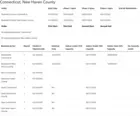
Professors Matthew Spiegel and Heather Tookes have collaborated on a new working paper titled, “Business Restrictions and COVID Fatalities.” To accompany this paper, they have released a state and county policy look-up tool. This includes the history of state and county-level business and related Covid-19 restrictions for all counties in the U.S. since March. It contains the most comprehensive historical data on U.S. county-level policies that they are aware of.
December 9, 2020 – The Connecticut Mirror hosted a conversation with three Connecticut-based health and finance experts on COVID-19's resurgence.
The Future of Real Estate
Throughout the pandemic, many Americans have worried about being able to make their rent and mortgage payments during a time of economic hardship and uncertainty. This also prompted people to wonder about the post-Covid-19 real estate market. Will people permanently move away from densely populated cities and into the suburbs as working from home becomes the new norm?
Matthew Spiegel:
- "Homeowners get 90-day pass on mortgage bills. Renters still owe rent." The CT Mirror
- “Lamont signs COVID-19 residential rent protections,” Yale Daily News
Robert Shiller:
- “How to Navigate the Coronavirus Real Estate Market,” The New York Times
- “Shiller Worried Covid-19 Will Leave Lasting Scars on Housing Market,” Bloomberg
- “Home Sales, Rents, and Unemployment – You Ain’t Seen Nothing Yet,” Realty Biz News
- “The Housing Bubble is Even Bigger Than the Stock Market Bubble,” The Street
- “Is Renting Throwing Away Money?” MorningStar
- “Home Prices Are In a Bubble. Full Stop.” Bloomberg
- “Home prices show signs of recovery, rising 4.3% in June, according to Case-Shiller index,” CNBC
- “Robert Shiller warns that urban home prices could decline,” CNBC
- “Will Homebuilder ETFs Continue To Benefit From Urban Transition?,” ETF Trends
- “Home prices kept on rising in May, but at a slower rate, Case-Shiller index shows,” MarketWatch
- “Yale's Shiller: Housing has disconnect with ‘real economy’ so far,” Yahoo!Finance
- “Why Buying a Home Right Now Could Be a Good Idea,” Bloomberg (Podcast)
- “Are Home Buyers Heading to the Suburbs?” Barron’s Streetwise (podcast)
- “The Cold War and the Rush for Suburban Homes,” Bloomberg (podcast)

July 31, 2020 – New York Times: Suburbs and fashionable exurbs are hot, but don’t forget that home prices have fallen before, a Nobel laureate (Robert Shiller) warns.
July 7, 2020 – Bloomberg: Robert Shiller, Yale University professor of economics, talks about the lasting impact of the coronavirus on the housing market. He appears on "What'd You Miss?"
June 12, 2020 – Barron’s Streetwise with Jack Hough podcast: Yale economist Robert Shiller and the CEOs of broker Redfin and homebuilder Taylor Morrison give their opinion about whether home buyers are heading to the suburbs.
Killer Acquisitions
Professor Song Ma and his co-authors have defined the term “killer acquisitions” to mean the act of companies acquiring competitors with the sole purpose of shutting them down. These companies want to swiftly end competitor innovation which would threaten their control over the market. During the Covid-19 crisis, examples of “killer acquisitions” came to light when there was high demand for ventilators and major difficulty obtaining them.
Song Ma
- “Big Companies Are Starting to Swallow the World,” The New York Times
- “When Corporate Acquisitions Affect Healthcare,” Yale Insights
- “Killing Innovation in the Pharmaceutical Industry,” Think at London Business School
- "Unsanitized: Covidien's Story Is Corporate America's Story," The American Prospect
- "Pandemic opens curtains on next economic model," Asia Times

April 2, 2020 – Yale Insights:
Research by Yale SOM’s Florian Ederer and Song Ma has shown that companies often purchase competitors, not to acquire their ideas and products, but to shut them down—a phenomenon that they have dubbed “killer acquisitions.” We asked them to shed light on a recent report raising questions about whether such an acquisition may be partially responsible for a shortage of ventilators in the United States.
Sporting Events
The implications of suspending live sporting events and restricting crowds will have an impact on the economy as well as on the sport itself. Sporting events are a major source of entertainment and revenue worldwide but with the possibility of playing in front of empty stands, Professor Tobias Moskowitz has found that referees may actually make better calls.
Tobias J. Moskowitz
- “How levelling the playing field can allow talent to shine,” Campaign
- “Sharpe's Take: Favorite NFL Week 1 bets,” PFF Football News & Analysis
- The Truth About NBA Home-Court Advantage,” Bleacher Report
- “If NBA’s Virtual Fans Don’t Behave, There’s an Eject Button,” The Wall Street Journal
- “Home advantage to possibly disappear behind closed doors when League of Ireland returns,” Extratime.ie
- “No Fans Allowed? How home-field advantage could be affected in NFL season without full stadiums,” CBS Sports
- “Manchester United's potential Europa League opponents in action as Bundesliga is back,” Manchester Evening News
- “As we consider a future without fans in the stands, what does that mean for athletes?” Boston Globe
- "Bundesliga is back but will home field advantage now mean nothing?" Irish Mirror
- "The Big Winners of Sports Without Fans: The Refs," The Wall Street Journal

May 24, 2020 – The Boston Globe: Tobias Moskowitz, an economist and Yale professor of finance, co-authored “Scorecasting: The Hidden Influences Behind How Sports Are Played and Games Are Won.” Among other topics, Moskowitz studied the influence home-court advantage has on a game’s outcomes. He looked at variables such as fan support, travel, and familiarity with venues.

April 23, 2020 – The Wall Street Journal: Games behind closed doors will be bizarre. But economists believe referees will make better calls when they don’t have people screaming at them.
The Art World
Nothing is business as usual since the Covid-19 pandemic forced many businesses to shut their doors to the public. Businesses had to think outside of the box in order to survive and the art world was no exception. Many musesums, galleries and art fairs found creative ways to virtually maintain engagement with their patrons while also catching the eye of new art enthusiasts.
William Goetzmann
- “Entrepreneurs Bet Big on Immersive Art Despite Covid-19,” The New York Times
- “Can immersive art remain afloat when money is the object?” Chicago Tribune
- “Could Covid-19 kill off the market for the art world’s star names?” The Art Newspaper
- “The Art World in the Age of COVID,” Yale Insights

October 15, 2020 – Yale Insights: COVID created a crisis for the art world when museums, galleries, and art fairs were closed down. In an online discussion led by Prof. William Goetzmann, leaders in the field discussed the state of art institutions and the reasons for hope about the long term.
Teaching Remotely
The Yale finance faculty had to suddenly adapt to online teaching in March of 2020 and acted quickly to learn how to effectively use Zoom for everyday teaching. At the end of the semester, faculty then reflected upon what worked and what can be improved for future online teaching.
Nicholas Barberis
- "From Chalkboard to Zoom Rooms: Teaching During Covid-19" Yale University
Paul Goldsmith-Pinkham
- "Faculty Describe Challenges and Lessons Learned in the Virtual Classroom" Yale School of Management
[WATCH] May 15, 2020 – Paul Goldsmith-Pinkham on the benefit of polling in class.


